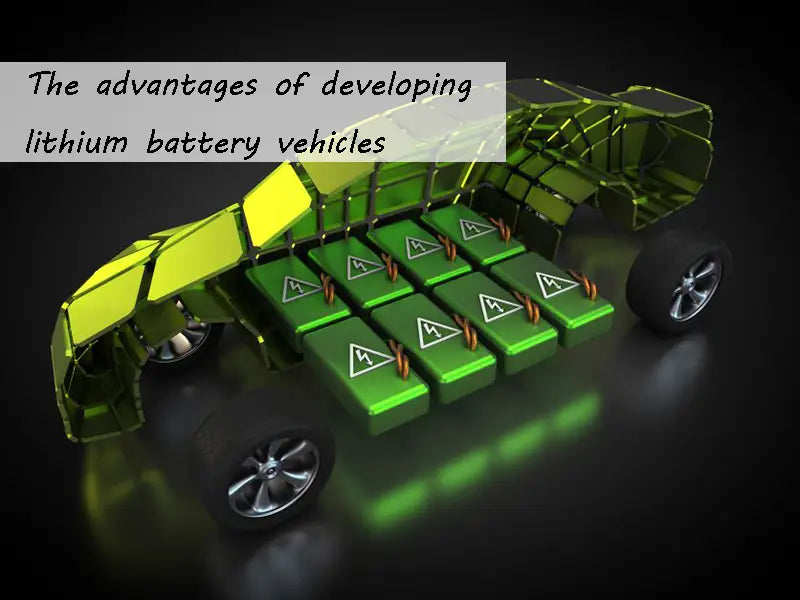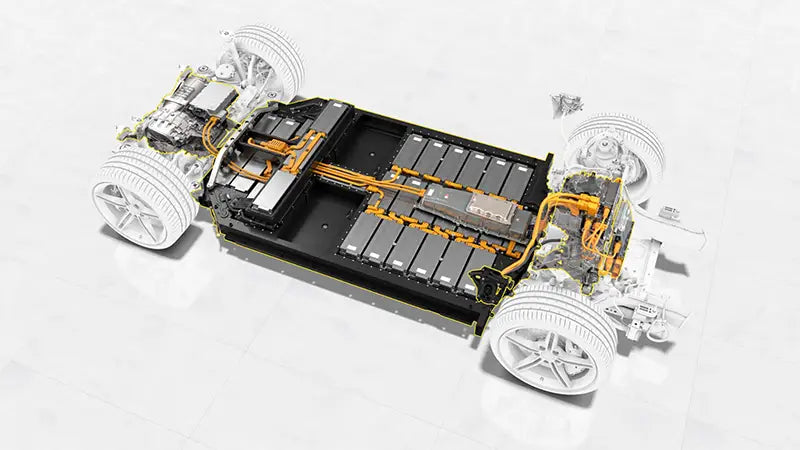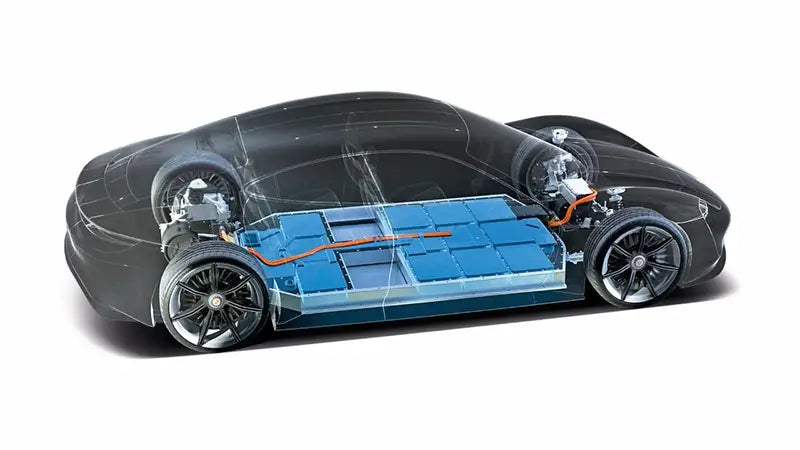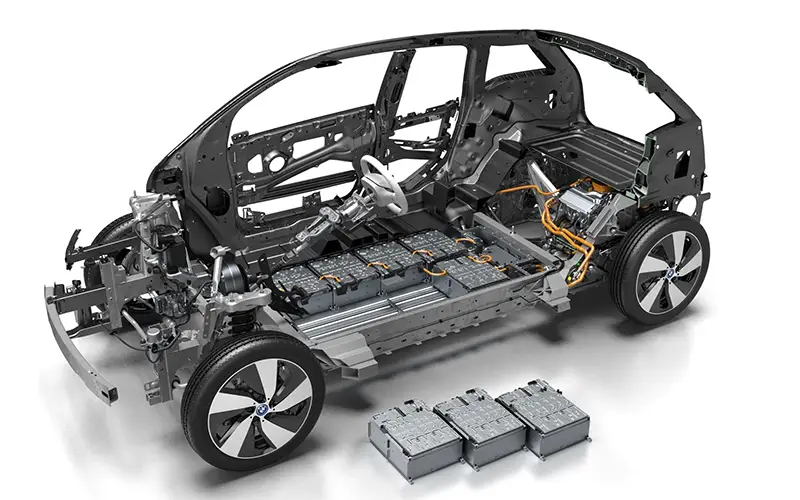
Main content:
- Lithium battery vehicles resource advantage
- Technical advantages of lithium battery vehicles
- Lithium battery vehicles market advantages
- The financial and material resources of the Chinese government are relatively easy to initiate investment in charging infrastructure
- The loss of China's gas turbine technology assets due to the development of lithium battery vehicles
lithium battery vehicles rely on electricity to drive. Compared with traditional vehicles, the number of engines, gearboxes, fuel tanks, mufflers and exhaust pipes is reduced. lithium battery vehicles can meet the energy-saving and environmental protection requirements of zero emission, low energy consumption and low noise. Among lithium battery vehicles components, the battery is the core component.
Under the pressure of depletion of traditional energy sources and environmental protection, the development of new energy vehicles has become a "highlight" favored by governments around the world, and lithium battery vehicles powered by lithium batteries have become a hot spot in international competition. The reason why electric vehicles cannot develop is mainly due to the battery, so the core technology of the battery is inseparable from the development. Pure electric vehicles are not far from their commercialization era, and lithium batteries will be the focus of the development of electric vehicles in China in the future. Lithium batteries are batteries with better performance. The global electric vehicle batteries are mainly lithium batteries, and China has an advantage in lithium battery production.
The development of lithium battery vehicles can not only replace oil with electricity, reduce greenhouse gas emissions, but also store valley electricity in the grid, which can kill three birds with one stone. China's development of lithium battery vehicles not only has technological advantages that can compete with developed countries, but also has resource advantages and market advantages that developed countries do not have. New breakthroughs in lithium-ion batteries have greatly reduced the cost and improved performance of lithium battery vehicles, and marketization is imminent. Rapidly advancing the industrialization of lithium battery vehicles is a strategic choice in line with China's national conditions. lithium battery vehicles are a rare historical opportunity for China in the fierce international competition. lithium battery vehicles will bring an "energy revolution" and "industrial revolution".
According to estimates by the Development Research Center of the State Council, the national car ownership will reach 56.69 million in 2010 and 131.03 million in 2020. The fuel demand of motor vehicles is 138 million t and 256 million t respectively, which is 43% and 57% of the total national oil demand in that year; that is to say, the automobile will "eat" about half of the oil. How to meet the demand for oil from automobiles is a major issue related to national energy security. Vigorously developing lithium battery vehicles and replacing oil with electricity is a strategic measure to ensure China's energy security.
At present, the total amount of global greenhouse gas emissions continues to rise, and 25% of CO2 emissions come from automobiles. In China, pollution from automobiles has become an important factor in urban air pollution. China's CO2 emissions have already ranked first in the world, and the pressure to reduce CO2 will be increasing. lithium battery vehicles themselves are zero-emission, and the development of lithium battery vehicles can greatly reduce harmful gas emissions.
By the end of 2007, China's installed power capacity had exceeded 700 million kW, and a day's low electricity was about 920 million kW·h, which could charge 30 million to 40 million lithium battery vehicles. By 2020, the installed capacity will exceed 900 million to 1 billion kW, and the low valley electricity will exceed 1.2 billion kW h. Both wind power and photovoltaic power are discontinuous power sources, and the problem of energy storage needs to be solved. lithium battery vehicles are distributed energy storage systems, and the energy storage efficiency can reach 90%, which is much higher than the efficiency of pumped storage power stations (70%).

Due to the rapid technological progress of lithium-ion batteries, the cycle life of the battery pack has exceeded 1,000 times, and the cost of each kW·h battery is less than 3,000 yuan. If an electric car is installed with a 24kW·h battery pack, and the driving range on a single charge is greater than 200km, the cost of electricity for a lithium-ion car in 10 years is about 10,000 yuan. The cost of refueling for traditional fuel vehicles in 10 years is at least 80,000 yuan. Even if the battery of an electric vehicle is replaced once in 10 years, the cost of using it will cost 72,000 yuan more, and the total is only 82,000 yuan. It can be seen that the cost of using the two vehicles is basically the same, but the battery pack replaced by the electric vehicle still has 70% to 80% of the initial capacity, which can be used as static energy storage.
Only by vigorously developing lithium-ion battery-powered lithium battery vehicles can China seize a rare historical opportunity in the fierce international competition. As a well-known consulting firm concluded: By developing lithium battery vehicles, "China may take the lead in the third technological revolution in the global automotive industry."
1. Lithium battery vehicles resource advantage
The main key components of lithium battery vehicles are lithium-ion power batteries and permanent magnet synchronous motors. The development of lithium battery vehicles in China has unique favorable conditions in terms of resources.
Raw materials for lithium-ion batteries are widely sourced in China. China is the world's largest lithium resource country. About half of the world's lithium reserves are in China. For example, Qinghai and Tibet have salt lakes, which store a large amount of lithium. This resource advantage is unique. The development of the salt lake not only provides raw materials for low-cost lithium-ion batteries, but also benefits the development of the western region. At the same time, manganese, iron, vanadium and phosphorus are all rich resources in China. Permanent magnet synchronous motor has the characteristics of small size, light weight and high efficiency. Motors for lithium battery vehicles are made of rare earth materials. China is also a country with rare earth resources. The output of rare earth alloys ranks first in the world, which is also a technical advantage. , which provides a material guarantee for lithium battery vehicles.

2. Technical advantages of lithium battery vehicles
China's low-power lithium-ion batteries have long been industrialized, forming a complete industrial chain integrating upstream and downstream. Battery products exceed 1/3 of the world market. China, Japan, and South Korea have become a tripartite trend. China's lithium-ion power batteries have reached the international advanced level in technology, and the industrialization conditions have basically matured, and they have the strength to participate in international competition.
The key technologies of pure electric buses and their application projects in the public transportation system have established and improved the design theory, development process and platform of pure electric buses, and solved problems such as power consumption system and secondary insulation; large-scale application of high-energy lithium-ion power batteries has solved the problem of A series of core technical problems have been solved. The world's largest lithium-ion barrier-free electric bus independently developed and produced has been successfully operated in the central area of the Beijing Olympic Games without any breakdown.
At present, the most promising battery technology for industrialization is lithium iron phosphate battery. China's major lithium iron phosphate battery manufacturers are BYD and Wanxiang Group, of which BYD accounts for 30% of the world lithium cobalt oxide battery market.
3. Lithium battery vehicles market advantages
China has a large population and a high concentration of distribution, which is suitable for the development of small cars, which creates market conditions for the industrialization of lithium battery vehicles.
Consumption habits are one of the important factors that determine the feasibility of lithium battery vehicles in the market. The Chinese people are far less picky and extravagant than Americans for the comfort of their cars. Most people still expect a private car to be able to keep out the wind and rain and be flexible. In control, it is enough to be able to travel by car.
4. The financial and material resources of the Chinese government are relatively easy to initiate investment in charging infrastructure
China has independently developed and built the world's largest modern bus research station, which can provide rapid battery replacement and centralized charging services for 50 Olympic pure electric buses, and provide a strong guarantee for the reliable and stable operation of lithium battery vehicles. The construction has accumulated valuable experience.
The biggest difficulty in the development of lithium battery vehicles in China is that users do not have exclusive garages for charging users like European and American residents.
It took decades to build the hundreds of thousands of gas stations in China at present, but it is impossible to spend decades to build charging stations. Therefore, the charging problem needs to be solved as soon as possible, and the solution of the charging method requires the support of national policies and the construction of infrastructure. However, in the long run, the large-scale commercialization of electric vehicles requires the support of the battery industry, power grids, and municipal infrastructure. Obviously, China still has a long way to go to realize the commercialization of lithium battery vehicles.
5. The loss of China's gas turbine technology assets due to the development of lithium battery vehicles

Very limited compared to the West Compared with developed countries where the traditional auto industry has matured, the commercial barriers to developing lithium battery vehicles in China are much smaller. The underdevelopment of the traditional automobile industry is precisely the advantage of our development of a new lithium-ion vehicle transportation mode, which can make it easier to travel lightly.